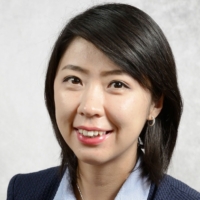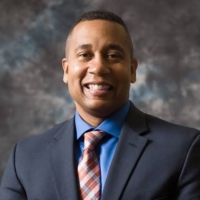CRA-WP Names Yakun Sophia Shao as 2024 Anita Borg Early Career Award Recipient
By Lauren Lashlee, Program Associate, CRA-WP
Since 2004, CRA-WP has recognized an outstanding computer science researcher in honor of Anita Borg, by awarding them with the CRA-WP Anita Borg Early Career Award (BECA).
 CRA-WP is pleased to announce Yakun Sophia Shao (University of California, Berkeley) as the recipient of the 2024 Anita Borg Early Career Award for her research, mentorship, and service to the computer science community.
CRA-WP is pleased to announce Yakun Sophia Shao (University of California, Berkeley) as the recipient of the 2024 Anita Borg Early Career Award for her research, mentorship, and service to the computer science community.
Shao is an Assistant Professor of Electrical Engineering and Computer Sciences at the University of California, Berkeley. Previously, she was a Senior Research Scientist at NVIDIA and received her Ph.D. in 2016 from Harvard University. Her research focuses on computer architecture, specifically domain-specific architecture, deep-learning accelerators, and high-productivity hardware design methodology. Shao’s work has been awarded a Distinguished Artifact Award at ISCA’2023, the Best Paper Award at DAC’2021, the Best Paper Award at JSSC’2020, a Best Paper Award at MICRO’2019, a Research Highlight of Communications of ACM (2021), Top Picks in Computer Architecture (2023, 2014), and Honorable Mentions (2019*2). She is a recipient of a Sloan Research Fellowship, an NSF CAREER Award, the 2022 IEEE TCCA Young Computer Architect Award, an Intel Rising Star Faculty Award, a Google Research Scholar Award, and the inaugural Dr. Sudhakar Yalamanchili Award. You can visit Professor Shao’s personal webpage at: https://people.eecs.berkeley.edu/~ysshao/.
Read more about the CRA-WP Early Career Awards.
Get to know Sophia Shao:
What brought you to computing research?
My journey into computing research was primarily driven by the exciting challenge of building solutions from the ground up and tackling problems that were previously unsolved. There’s a unique joy in innovating and creating something entirely new. This aspect of discovery and creation is what really attracts me to the field of computing research. It’s about pushing boundaries and exploring the unknown, which I find immensely rewarding.
Do you remember your first research project?
My first significant venture into what I would call “research-oriented” work was participating in a robotics competition during my junior year in college. This project, while not leading to a publication, was pivotal in shaping my interest in computing research. I was deeply involved in programming microcontrollers, and experimenting with different sensors and actuators to build various robots. This experience was not only really fun but also served as my introduction to system research. It also sparked a curiosity about computer architecture, especially the intricacies of how processors work, which eventually became the focus of my research.
What project was your most memorable or favorite to work on?
My favorite project to date was the Simba project during my time at NVIDIA, where we developed the first chiplet-based AI inference accelerator. This project stood out for several reasons. First, it was a prime example of building vertically integrated systems, showcasing innovation at every level from algorithms and architecture to circuits. Second, the project was highly collaborative, giving me the opportunity to work alongside many amazing colleagues from diverse backgrounds and areas of expertise. The combination of technical innovation and teamwork made this project not only challenging but also incredibly rewarding and enjoyable.
What challenges did you encounter when you first started your research career?
When I first embarked on my research career, the most significant challenge I faced was managing uncertainty. Initiating my own research projects was exciting, but the inherent uncertainty and numerous moving parts could be overwhelming. Several strategies helped me navigate this challenge effectively. First, I frequently talked to my mentors and collaborators to share my struggles. These conversations provided invaluable guidance for me to navigate the research process. Second, I made a concerted effort to organize my thoughts, clearly delineating what had been previously established, the specific problems I aimed to address, and my initial hypotheses. Lastly, I focused on initiating concrete prototypes to break down the project into manageable segments. This step-by-step approach allowed me to tackle the project piece by piece, which not only reduced ambiguity but also ensured steady progress.
Can you tell us about any current research projects you’re working on?
My current research focuses on hardware-software co-design for domain-specific systems, particularly emphasizing efficiency and scalability in emerging applications like AI and robotics. We are exploring innovative hardware and software mechanisms aimed at accelerating computing through enhanced accelerator design and integration. This approach optimizes performance from an end-to-end perspective, involving a comprehensive examination of how these technologies can be synergistically developed to meet growing computational demands effectively.
I noticed that you switched from Research Scientist to Professor, what guided you to make this career shift?
I enjoyed my experiences in both roles and view them as distinct yet complementary phases of my career. Working as a research scientist at NVIDIA was incredibly fulfilling, allowing me to collaborate with talented colleagues on cutting-edge problems. However, my shift back to academia was driven by a deep appreciation for the educational aspect of research. I find immense joy in mentoring students—both undergraduates and graduates—and engaging in mutual learning. The opportunity to have a tangible, positive impact on their careers is something that I find uniquely rewarding about being a faculty member at a major public university.
Knowing what you know now, what advice would you give to your younger self at the start of your career?
I would tell my younger self that everything is going to be okay 😉 Challenges that seem overwhelming at the moment often turn out to be just brief episodes in the broader context of your career. Embrace both the challenges and opportunities, and don’t be swayed by temporary setbacks or confusion. With time, things will fall into place, and the journey will not only be rewarding but also enjoyable.









